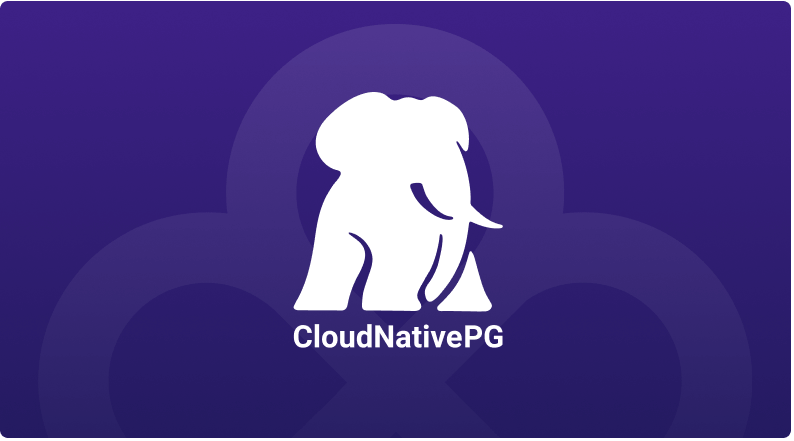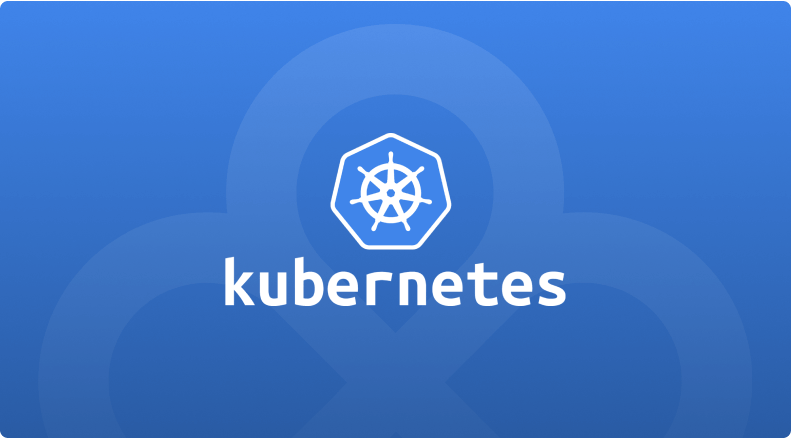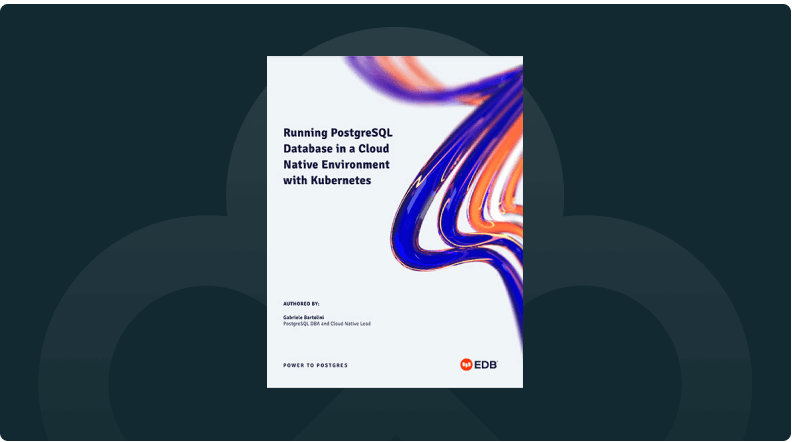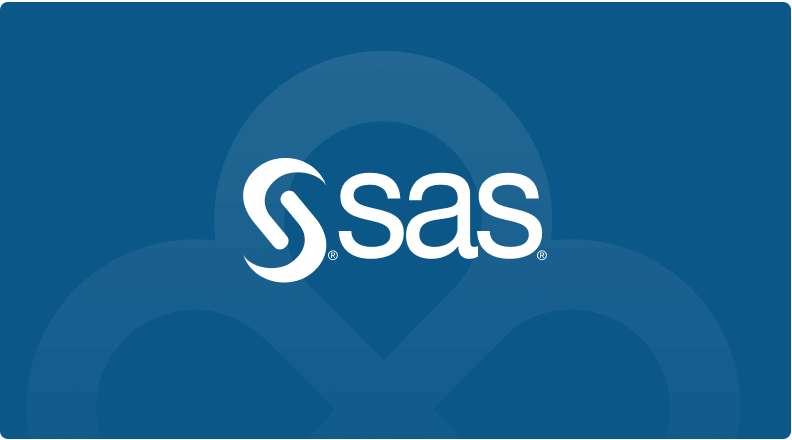Advancing Database Operations with Kubernetes and PostgreSQL
Achieve unmatched scalability and efficiency with cloud-native solutions
The Shift Toward Cloud-Native Database Operations
Transforming database management with PostgreSQL and Kubernetes
As businesses increasingly embrace digital transformation, the demand for efficient, scalable, and resilient database operations has also surged.
The advent of cloud-native architectures and containerization technologies has ushered in new standards for database management, underscoring the importance of flexible infrastructure. At the forefront of this evolution are Kubernetes and PostgreSQL, a dynamic duo that is reshaping the landscape of modern database deployments.
Kubernetes provides robust container orchestration capabilities, enabling organizations to develop, deploy, and manage applications at scale, while PostgreSQL offers a powerful, open source database solution tailored for cloud environments.
Together, PostgreSQL and Kubernetes are revolutionizing how modern databases are deployed and managed in cloud-native environments, offering unparalleled benefits in terms of agility, performance, and cost-efficiency.
Learn more about how this integration is leading the charge toward the future of database operations on our blog.
PostgreSQL: The Ideal Fit for Kubernetes
Harnessing adaptability, growth potential, and high availability
PostgreSQL’s flexibility and scalability make it the perfect match for Kubernetes, offering unparalleled capabilities in managing both stateless and stateful workloads. As organizations increasingly pivot to cloud-native strategies, PostgreSQL emerges as a robust database solution, adeptly handling the dynamic demands of modern applications.

Flexibility and Scalability in Action
PostgreSQL seamlessly integrates with Kubernetes, leveraging its potent adaptability and scalability. This integration is crucial for managing diverse and fluctuating workloads efficiently.
“CloudNativePG ensures that everyone can start using an entirely open source stack for Postgres® in Kubernetes for all their applications, with all the freedom they demand.”
– Gabriele Bartolini
With Kubernetes orchestrating containerized applications, PostgreSQL ensures smooth data transactions and processes – even in the face of high traffic or complex queries. The open source CloudNativePG operator, for example, enhances this synergy by automating deployment and management tasks.
“CloudNativePG uniquely manages cluster state without Patroni, enabling direct access to advanced operator-level functions like failover management and load balancing.”
– Team EDB
High Availability and Resilience
High availability is a cornerstone of PostgreSQL’s functionality within Kubernetes, enabling continuous uptime and rapid failover. This is particularly vital for applications that demand uninterrupted operations. The sophisticated replication features of CloudNativePG, such as managing replication slots effectively, ensure that data is consistently available even during unexpected outages.
As enterprises embrace Kubernetes, PostgreSQL stands out by not only meeting but exceeding the rigorous demands of cloud-native databases. Its robust performance underpins critical applications, safeguarding data integrity while optimizing resource utilization.

"Self-healing in Kubernetes enables automatic promotion of Postgres replicas to primary, ensuring high availability. However, without proper configurations like WAL archive or replication slots, replicas may lose sync, requiring manual re-cloning. CloudNativePG enhances this process with automated management of physical replication slots, maintaining cluster integrity even through failovers."
– Gabriele Bartolini
Explore PostgreSQL features in Kubernetes here.
3 Key Benefits of Running PostgreSQL on Kubernetes
Realizing the potential of Kubernetes for PostgreSQL
Incorporating PostgreSQL within a Kubernetes ecosystem brings transformative advantages to how databases are managed and scaled. The alignment of these two technologies enhances operational efficiency, adaptability, and resource utilization, propelling businesses forward in their data management capabilities.

Cloud-Native Automation
By leveraging the cloud-native capabilities of Kubernetes, PostgreSQL can be seamlessly automated, allowing businesses to manage databases with greater efficiency. This automation reduces manual labor by using Kubernetes API for deploying, managing, and monitoring tasks. Companies benefit from a simplified workflow and enhanced operational productivity, enabling teams to focus on strategic goals rather than repetitive tasks.
Consistent Operations
Running PostgreSQL on Kubernetes drastically minimizes the risk of human error, resulting in highly reliable and consistent data services. This setup ensures that organizations can maintain a steady pace in their operations, without disruptions. With expert guidance in cloud-native practices, businesses can stay ahead with the latest advancements, ensuring that their systems are robust and resilient.
Self-Healing Architecture
Kubernetes enhances PostgreSQL’s resilience by providing a self-healing architecture that reduces downtime. Failed nodes are automatically recovered and reintegrated, minimizing the burden on IT teams. This capability enables swift restoration of service through built-in failover, switchover, and recovery processes, ensuring consistent uptime and system reliability while allowing for seamless upgrades and maintenance.
PostgreSQL and Kubernetes in Action: A Success Story
Improving database operations with PostgreSQL and Kubernetes
The integration of PostgreSQL with Kubernetes is shaping a new era in database management, offering unparalleled flexibility and scalability for modern organizations. Below, we delve into how enterprises like SAS are leveraging this powerful combination to streamline their database operations and align with cloud-native environments.
EDB Customer Success Story: SAS’s Journey to Database Modernization
SAS, a global leader in analytics, embarked on a journey to optimize its database capabilities with the aid of EnterpriseDB (EDB). By deploying and operationalizing an enterprise-class Postgres database, SAS addressed the need for a more robust and flexible data infrastructure. The collaboration with EDB ensured seamless migration and enhanced data management, allowing SAS to leverage Postgres’ open source advantages while significantly reducing operational costs.

“We knew we needed a support partner that could bolster our Postgres expertise, train our team on how to make the most of Postgres, guide us toward the best tools to support the database, and provide on-call support for troubleshooting. After looking at the options, it was clear that EDB could meet our needs.”
– David Wagoner, SAS
Looking ahead, SAS recognizes the potential of integrating Kubernetes into its strategy, aiming to further modernize its database operations. By adopting Kubernetes, SAS plans to harness superior scalability and dynamic resource management, underscoring the company’s commitment to innovation in data handling. This forward-thinking approach aligns with industry trends, positioning SAS to remain at the forefront of technology-driven business solutions.
Best Practices for Managing PostgreSQL with Kubernetes
Optimizing PostgreSQL management on Kubernetes
Managing Postgres deployments on Kubernetes demands a carefully structured approach to ensure efficiency and seamless operation. EDB offers enterprise-grade Kubernetes Operators to enhance Postgres management in containerized environments.
- Containerized database management: Leveraging EDB CloudNativePG Cluster or EDB CloudNativePG Global Cluster, businesses can deploy Postgres instances with streamlined container orchestration, enhanced resource management, and automated high availability. This approach is vital as it allows for scalable and flexible deployments that adapt to evolving workloads.
- Ensuring data persistence: Database reliability hinges on robust storage solutions. EDB emphasizes the use of persistent storage configurations that safeguard data against loss, maintaining database integrity even in dynamic cloud environments.
- Security best practices: Employing best practices for security is crucial. EDB guides organizations on implementing security protocols that protect data in transit and at rest, utilizing Kubernetes’ native capabilities alongside dedicated EDB security enhancements.
For organizations keen on exploring these strategies, EDB provides expert support tailored to optimize Postgres deployments on Kubernetes platforms. By integrating these best practices, businesses can fully leverage the potential of Kubernetes to transform their database operations.
The Future of Database Operations: Postgres, Kubernetes, and Beyond
Explore what’s next in database operations
As technology rapidly evolves, the combination of Postgres and Kubernetes emerges as an essential solution for advancing database operations. The future of these operations is set at the intersection of Postgres, Kubernetes, and new technologies such as AI and machine learning. This collaboration facilitates scalable and secure data management across various environments, meeting the demands of modern infrastructures.
Postgres’ versatility shines in cloud-native deployments. When integrated into Kubernetes clusters, it takes advantage of Kubernetes' orchestration capabilities, accommodating dynamic workloads and enhancing reliability. Coupled with AI and machine learning, this setup offers predictive analytics and automation, driving smarter decisions.
Multi-cloud deployments further advance hybrid environments that require seamless interoperability, an area where Postgres and Kubernetes excel. They ensure strong data consistency and access across platforms, allowing businesses to optimize infrastructure, reduce costs, and minimize downtime.
EDB: Powering Postgres in Kubernetes
Enhancing Postgres performance in Kubernetes environments
EDB is at the forefront of optimizing Postgres for deployment within Kubernetes environments. By leveraging EDB’s innovative solutions, enterprises can achieve seamless integration of Postgres into their cloud-native infrastructure, maximizing performance and security while simplifying management.
- Ease of management: EDB offers cutting-edge tools designed to streamline Kubernetes Postgres deployments. Through intuitive interfaces and automation capabilities, these tools simplify database administration tasks, enabling organizations to efficiently manage their cloud-native Postgres environments. This ease of management empowers database administrators to focus on higher-level strategic initiatives rather than operational challenges.
- Security solutions: Recognizing security as a critical concern, EDB provides robust security features tailored for Postgres databases that work as Kubernetes deployments. These include advanced authentication methods, encryption protocols, and compliance with industry-standard security practices. By implementing these features, EDB ensures that enterprise data is protected against potential threats, maintaining data integrity within Kubernetes-based infrastructure.
- Performance optimization: EDB’s solutions are engineered to enhance Postgres performance in Kubernetes contexts. Through in-depth performance tuning and resource allocation capabilities, EDB enables enterprises to optimize their database operations. This results in accelerated application performance and improved resource utilization, ensuring a superior user experience and heightened operational efficiency.
The Path Forward: Adopting Kubernetes and Postgres for Future-Proof Database Operations
Embrace modernization for a competitive advantage
Enterprises looking to future-proof their database operations will need to adopt innovative solutions such as Postgres and Kubernetes. The integration of Postgres in Kubernetes environments has revolutionized database operations, providing an unparalleled level of scalability, flexibility, and efficiency.
Modern organizations have found success by adopting a DevOps approach that leverages cloud-native databases to optimize performance and enhance resilience. With Kubernetes Postgres deployment, businesses can benefit from seamless scalability and automated management, reducing time-intensive operational tasks. Furthermore, cloud-native Postgres solutions present powerful use cases that align with the dynamic needs of today’s digital enterprises.
The time is now to modernize your database infrastructure. Embracing Postgres and Kubernetes is key to future-proofing your database operations, ensuring agility, cost-effectiveness, and sustained competitive advantage. Make the strategic leap to a robust and adaptable database strategy today.
Discover More on Postgres and Kubernetes in Modern Database Operations
These insightful resources can enhance your understanding of the transformative power of Postgres and Kubernetes in today’s database management.
Understand how Kubernetes enhances the deployment and management of Postgres through cloud-native solutions.
Explore the leading advancements in Postgres operators for Kubernetes and how they optimize modern database infrastructures.
Discover the current trends shaping Postgres upgrades within Kubernetes environments.
Running PostgreSQL on Kubernetes offers several advantages, such as scalability and portability. Kubernetes orchestrates containerized applications, ensuring that PostgreSQL can rapidly scale with demand and easily migrate across different environments, from on-premises to cloud.
Kubernetes and PostgreSQL collaborate to provide a robust platform for database operations. Kubernetes manages PostgreSQL containers, enabling automated scaling, self-healing, and load balancing, while ensuring high availability through its management of stateful sets and persistent storage.
The optimal approach to deploying PostgreSQL in Kubernetes involves using a Kubernetes operator, such as CloudNativePG, EDB CloudNativePG Cluster, or EDB CloudNativePG Global Cluster. This tool streamlines deployment, automates backup and recovery processes, and simplifies database cluster management through declarative configurations.
Challenges include handling stateful data management, ensuring data persistence, and configuring security policies within the dynamic container ecosystem. It’s essential to address these issues by using stateful sets and persistent volume claims and maintaining strict security settings.
Kubernetes offers enterprises the flexibility and efficiency needed for modern database operations. Its ability to orchestrate containerized applications ensures high availability, simplifies maintenance, and enables seamless scaling, making it a strategic choice for businesses aiming to modernize their infrastructure.
EDB enhances Postgres deployments in Kubernetes through specialized tools and services, which include advanced monitoring, automated deployments, and professional support to ensure smooth operation and management.
Yes. EDB focuses on improving high availability through the use of EDB CloudNativePG Global Cluster, which provides automated failover, cluster management, and real-time monitoring capabilities to ensure continuous operation even during server outages.
EDB leverages its expertise by offering consulting services and performance tuning for clients using Postgres in Kubernetes, allowing enterprises to maximize their infrastructure’s efficiency and gain the highest possible performance from their database systems.
EDB has stringent database security measures, including robust access controls, data encryption, and managed security protocols tailored to the Kubernetes environment. These measures help protect sensitive data while maintaining compliance with industry standards.
EDB’s cloud-native solutions for Postgres provide enterprises with seamless integration, management simplicity, and reduced operational overhead. These solutions are designed to leverage Kubernetes’ strengths and enhance enterprise agility, allowing businesses to focus on growth-oriented objectives while the technical complexities are efficiently managed.
Discover New Possibilities with EDB
Explore the potential of Postgres and Kubernetes for modern database advancements.
Take the next step toward innovation by registering to learn more about our cloud-native solutions. Our experts are ready to guide you in maximizing the power of Postgres and Kubernetes to enhance your database strategy.